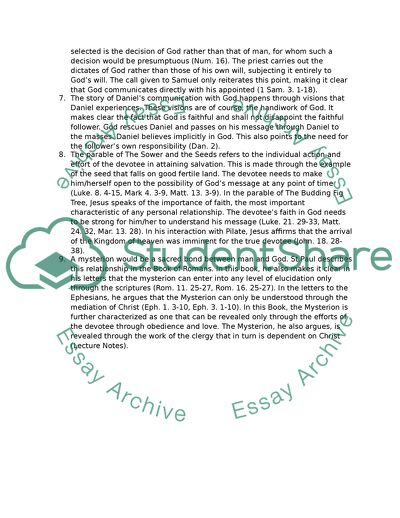Cite this document
(St. Augustines Views Regarding Sacraments Assignment Example | Topics and Well Written Essays - 1250 words, n.d.)
St. Augustines Views Regarding Sacraments Assignment Example | Topics and Well Written Essays - 1250 words. https://studentshare.org/religion-and-theology/1836300-bibical-basis-and-early-church-fathers
St. Augustines Views Regarding Sacraments Assignment Example | Topics and Well Written Essays - 1250 words. https://studentshare.org/religion-and-theology/1836300-bibical-basis-and-early-church-fathers
(St. Augustines Views Regarding Sacraments Assignment Example | Topics and Well Written Essays - 1250 Words)
St. Augustines Views Regarding Sacraments Assignment Example | Topics and Well Written Essays - 1250 Words. https://studentshare.org/religion-and-theology/1836300-bibical-basis-and-early-church-fathers.
St. Augustines Views Regarding Sacraments Assignment Example | Topics and Well Written Essays - 1250 Words. https://studentshare.org/religion-and-theology/1836300-bibical-basis-and-early-church-fathers.
“St. Augustines Views Regarding Sacraments Assignment Example | Topics and Well Written Essays - 1250 Words”. https://studentshare.org/religion-and-theology/1836300-bibical-basis-and-early-church-fathers.


